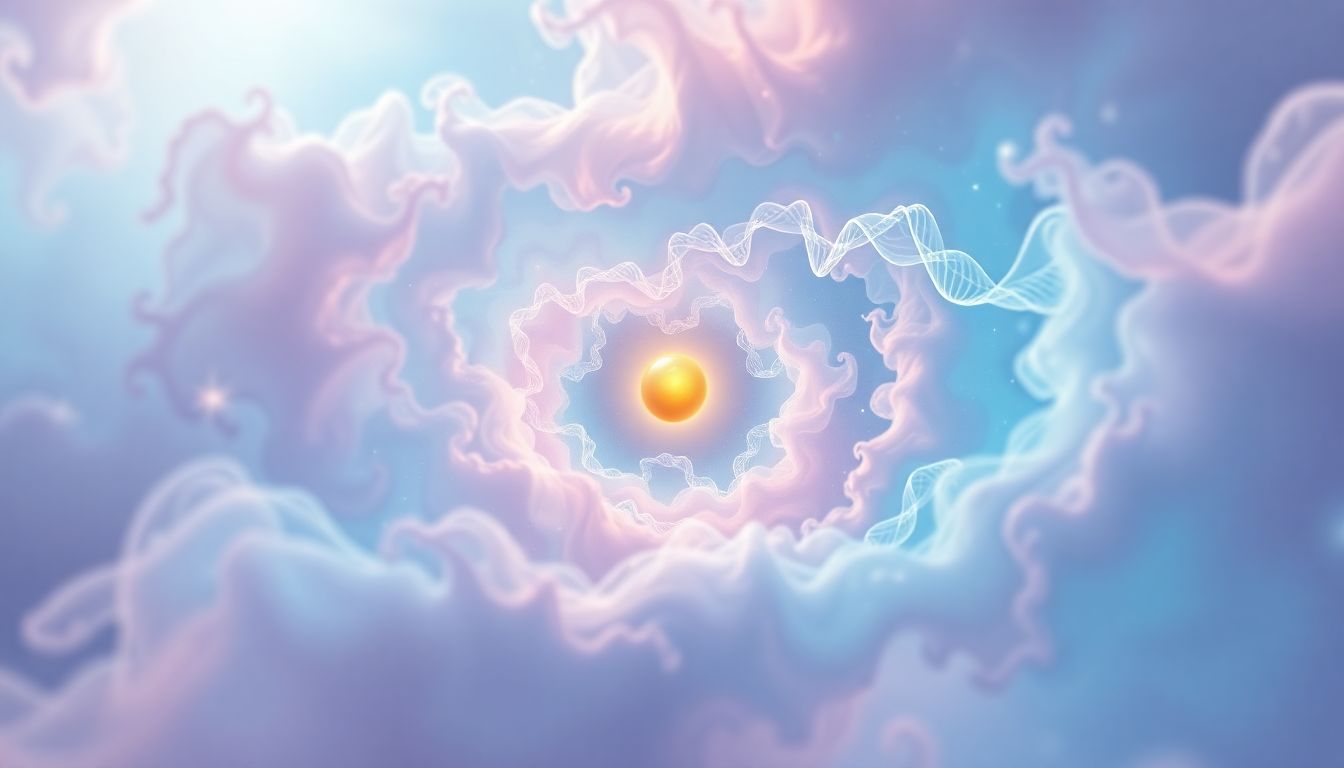
🔥 "Want the Full Guide? Grab Your FREE eBook Now!"
The Mindful Universe: Exploring Where Science Meets Spirituality
Can science and spirituality ever truly meet? It seems like these are total opposites. Science likes hard facts, while spirituality explores inner feelings. However, some thinkers believe there is a connection: a "mindful universe" where consciousness is deeply linked to all of creation. Let's explore this idea, looking at science and spiritual wisdom.
Quantum Physics and the Observer Effect
Quantum physics is weird. It deals with the smallest parts of reality. These tiny particles don't always follow the rules we expect. One of the strangest parts is the observer effect.
The Double-Slit Experiment
Imagine you're shooting tiny particles like electrons at a wall with two slits. What happens? If no one is watching, the electrons go through both slits at once, creating an interference pattern. When scientists observe, each particle goes through only one slit. That means the act of observing changes what happens. Is it that our awareness has an effect?
Quantum Entanglement and Non-Locality
Entanglement is another mind-blowing concept. Two entangled particles are linked, regardless of distance. If you change something about one, the other changes instantly, even if they are light-years away. Einstein called it "spooky action at a distance." Is this action a clue about an underlying interconnectedness?
Implications for Consciousness
Some people think these findings are huge. They might show that consciousness isn't just in our brains. It could be a basic part of the universe. This would mean our minds are connected to everything around us in ways we are just beginning to understand. Could our thoughts really shape what's real?
Neuroscience and the Biology of Spiritual Experience
Our brains play a big role in how we experience spirituality. Science studies how different brain states change when people meditate or have spiritual moments. It's like seeing what happens in the brain when someone connects to something bigger.
Brainwave States and Meditation
Meditation can change brainwaves. When we're awake and alert, our brains mostly show beta waves. During relaxation, alpha waves become more common. Deeper meditation brings theta waves. Some advanced meditators even show gamma waves, which are linked to higher awareness. How does meditation help our minds tune in?
Neurotransmitters and Mystical Experiences
Neurotransmitters affect how we feel and think. For example, serotonin is linked to feelings of well-being. Dopamine plays a role in pleasure and motivation. Some researchers think these chemicals are part of spiritual states. Mystical experiences might happen when these neurotransmitters change their normal levels.
The Default Mode Network and Transcendence
Our brains have a "default mode network" (DMN). It's active when we're not focused on a specific task. The DMN is linked to self-referential thoughts, like worries. During meditation, the DMN often quiets down. When this happens, people may feel more connected to everything around them. This shutting down may help us feel a sense of oneness.
Cosmology and the Anthropic Principle
Cosmology is the study of the universe's origin and its future. It brings up fascinating questions about if the universe seems designed for life. The anthropic principle tackles this idea.
The Fine-Tuning Problem
The universe seems finely tuned for life to exist. The values of physical constants, like gravity, appear precisely set. If these values were even slightly different, life as we know it might not be possible. Some see this as proof that something is special about our universe.
The Anthropic Principle Explained
There are different versions of the anthropic principle. The "weak" version says we can only observe universes that allow us to exist. The "strong" version suggests the universe must allow life. This is a point that sparks much debate!
Implications for Meaning and Purpose
If the universe seems designed for life, what does that mean? Does it give us purpose? Does it suggest a deeper intelligence at work? These questions open a window into spiritual ideas.
Mindfulness Practices for Exploring the Mindful Universe
You can explore the mindful universe yourself! These practices can help connect you to the deeper aspects of reality. They can lead to a greater sense of peace and connection.
Meditation Techniques
Mindfulness meditation involves focusing on the present moment. Loving-kindness meditation helps cultivate feelings of compassion. Try these techniques to calm the mind. Do you feel more connected?
Nature Connection and Awe
Spending time in nature can be powerful. Observing a sunset or hiking in the woods can bring feelings of awe. Awe can help us feel small but also connected to something vast. It can dissolve our sense of isolation.
Cultivating Compassion and Empathy
Compassion means feeling sympathy for others. Empathy is understanding their feelings. When we practice these, we recognize our shared humanity. It can expand our sense of connection to the entire universe.
Challenges and Criticisms
Linking science and spirituality isn't easy. It faces some real challenges. It's good to be aware of these concerns. This keeps our approach balanced.
Scientism and Reductionism
Some critics worry about "scientism." This is the idea that science is the only way to find truth. Reductionism is the idea that everything can be explained by breaking it down into smaller parts. This approach might miss the bigger picture of spiritual experiences.
The Problem of Confirmation Bias
Confirmation bias is when we only notice evidence that supports our beliefs. It can be a trap when mixing science and spirituality. Be careful to not only seek things that validate your current thinking.
The Importance of Critical Thinking
Critical thinking is key. We must examine evidence carefully. We must be open to different views. Rigorous evaluation and open-mindedness help avoid misinformation.
Conclusion
The mindful universe is a concept where science and spirituality meet. Quantum physics shows the strange role of observation. Neuroscience explores the brain during spiritual moments. Cosmology considers the fine-tuning of the universe. These ideas open new ways to understand our place in the cosmos.
Keep exploring. Cultivate your own sense of wonder. What will you find?

Comments